Avani Bio Energy – Tripuradevi, India
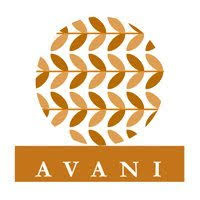 Avani Bio Energy generates clean electricity and cooking charcoal from ecologically harmful pine needles, which spread forest fires and destroy the fragile Himalayan ecosystem. ABE employs people in the villages to collect these fallen pine needles before
Avani Bio Energy generates clean electricity and cooking charcoal from ecologically harmful pine needles, which spread forest fires and destroy the fragile Himalayan ecosystem. ABE employs people in the villages to collect these fallen pine needles before  they burn, and converts them in to clean energy for rural needs, thus reducing carbon emissions, regenerating biodiversity and above all creating jobs in the villages. Avani Bio Energy is a for profit venture backed in part by the Acumen Fund. The team is interested to explore the business model of sustainable energy generation (120 KW capacity) and delivery based on pine needles, and the role and expectations of a funding agent like Acumen.
they burn, and converts them in to clean energy for rural needs, thus reducing carbon emissions, regenerating biodiversity and above all creating jobs in the villages. Avani Bio Energy is a for profit venture backed in part by the Acumen Fund. The team is interested to explore the business model of sustainable energy generation (120 KW capacity) and delivery based on pine needles, and the role and expectations of a funding agent like Acumen.
Student participants: Helen Fang, Sam Kruse, Nick Lo
East Bali Cashews – Karangasen, Bali
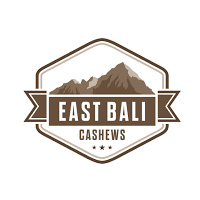 East Bali Cashews (EBC) is Bali’s first large-scale, environmentally friendly cashew processing facility. It provides employment to women in villages who had never had jobs. American entrepreneur Aaron Fishman founded EBC after witnessing an opportunity for villagers to process and package locally grown cashews in Bali rather than export the nuts overseas for production. The Yale student team is drawn to this project to learn more about how EBC attracted funding from the Impact Investment Exchange (IIX), Shujog and leading global investment firm Kohlberg Kravis Roberts & Co. (KKR) to enhance its financial model and quantify its social impact. Through this collaboration, EBC has been able to create a comprehensive business plan and develop a path to increase annual production from 200 tons of cashews to 600 tons. With these investments, EBC has tripled the size of its warehouse, and built a second processing factory and create nearly 200 new jobs for villagers.
East Bali Cashews (EBC) is Bali’s first large-scale, environmentally friendly cashew processing facility. It provides employment to women in villages who had never had jobs. American entrepreneur Aaron Fishman founded EBC after witnessing an opportunity for villagers to process and package locally grown cashews in Bali rather than export the nuts overseas for production. The Yale student team is drawn to this project to learn more about how EBC attracted funding from the Impact Investment Exchange (IIX), Shujog and leading global investment firm Kohlberg Kravis Roberts & Co. (KKR) to enhance its financial model and quantify its social impact. Through this collaboration, EBC has been able to create a comprehensive business plan and develop a path to increase annual production from 200 tons of cashews to 600 tons. With these investments, EBC has tripled the size of its warehouse, and built a second processing factory and create nearly 200 new jobs for villagers.
Student participants: Schuyler Arakawa, Julia Levinson, Jonathan Lian
EkoCenter Initiative – Heidelberg, South Africa
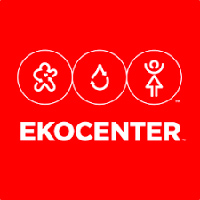 Launched in 2014 by The Coca-Cola Company in partnership with DEKA R&D as well as development banks, NGOs, and other companies, EKOCENTER is a community hub which delivers safe drinking water, wireless communication, electricity, and other services to communities without access to such necessities. Provision of such services is centered on the Slingshot technology, which is a vapor compression distillation system that
Launched in 2014 by The Coca-Cola Company in partnership with DEKA R&D as well as development banks, NGOs, and other companies, EKOCENTER is a community hub which delivers safe drinking water, wireless communication, electricity, and other services to communities without access to such necessities. Provision of such services is centered on the Slingshot technology, which is a vapor compression distillation system that 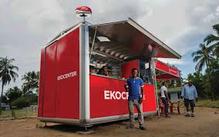 produces potable drinking water. The goal is to roll out 1500-2000 EKOCENTERs (or Slingshot systems) in Africa, Latin America, and Asia by 2015. As there are only a few beta trials of the EKOCENTER currently in operation, the scope of the team’s case focuses on Coke’s careful execution to create a social enterprise with such global scale. It examines the multi-year process building up to the launch of an early center in South Africa and portray the integration of planning and development to achieve the pilot launch.
produces potable drinking water. The goal is to roll out 1500-2000 EKOCENTERs (or Slingshot systems) in Africa, Latin America, and Asia by 2015. As there are only a few beta trials of the EKOCENTER currently in operation, the scope of the team’s case focuses on Coke’s careful execution to create a social enterprise with such global scale. It examines the multi-year process building up to the launch of an early center in South Africa and portray the integration of planning and development to achieve the pilot launch.
Student participants: Juli Cho, Gordan McCambridge, Ashley Wu
MPESO – Managua, Nicaragua
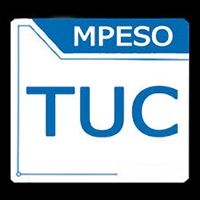 Only 10% of Nicaragua’s 6 million people have bank accounts, limiting their ability to save forcing them to carry excess cash for routine transactions. Founded in 2011, MPESO is a mobile banking service that enables any cell phone user to make instant and secure transactions in all of the 130 municipalities of the country. The service works with all
Only 10% of Nicaragua’s 6 million people have bank accounts, limiting their ability to save forcing them to carry excess cash for routine transactions. Founded in 2011, MPESO is a mobile banking service that enables any cell phone user to make instant and secure transactions in all of the 130 municipalities of the country. The service works with all 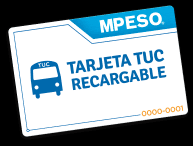 cellular service providers. Services include the ability to deposit and withdraw money, pay bills, transfer money and pay or receive wages all via cell phone. The case team is particularly interested in how MPESO rapidly scaled to over 700,000 users performing in excess of 1 million transactions per day when many mobile payment operators around the world struggle to reach enough volume to cover the relatively high fixed costs characteristic of this business.
cellular service providers. Services include the ability to deposit and withdraw money, pay bills, transfer money and pay or receive wages all via cell phone. The case team is particularly interested in how MPESO rapidly scaled to over 700,000 users performing in excess of 1 million transactions per day when many mobile payment operators around the world struggle to reach enough volume to cover the relatively high fixed costs characteristic of this business.
Student participants: Julian Chernyk, Rod Cuestas, Travis Hutchinson
Runa Tea – Archidona, Ecuador
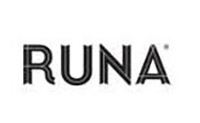 Founded in 2009 by two Brown University graduates with an interest in social enterprise and indigenous Amazonian communities, Runa manufactures and sells guayusa tea in the global market, providing the indigenous Kichwa population with a source of income to replace logging and environmental degradation of the Amazon Runa works with more than 2,000 farmers in the Ecuadorian Amazon in its product-to-market fair trade supply chain. Farmer cooperatives harvest guayusa leaves, which are purchased by Runa at fair and stable prices. These leaves are then dried and processed in their processing plant in Archidona, Ecuador. The Yale team is researching teas how Runa’s for profit business model is accompanied by the Runa Foundation, a non-profit organization that solicits grants that directly benefit the farming communities.
Founded in 2009 by two Brown University graduates with an interest in social enterprise and indigenous Amazonian communities, Runa manufactures and sells guayusa tea in the global market, providing the indigenous Kichwa population with a source of income to replace logging and environmental degradation of the Amazon Runa works with more than 2,000 farmers in the Ecuadorian Amazon in its product-to-market fair trade supply chain. Farmer cooperatives harvest guayusa leaves, which are purchased by Runa at fair and stable prices. These leaves are then dried and processed in their processing plant in Archidona, Ecuador. The Yale team is researching teas how Runa’s for profit business model is accompanied by the Runa Foundation, a non-profit organization that solicits grants that directly benefit the farming communities.
Student participants: Lindsey Hiebert, Kara Sheppard-Jones, Taylor Valentine
SmartPaani – Kathmandu, Nepal
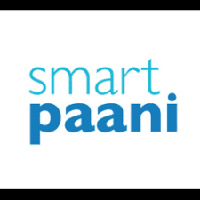 Founded in 2011, SmaartPaani is a social enterprise that focuses on providing environmentally and economically friendly solutions regarding water access and usage. Originally established as an affiliate of OnePlanet Solutions, an umbrella organization that specializes in water, energy, and waste solutions, SmartPaani transformed itself into a private company installing rainwater-harvesting equipment in Nepalese homes, building bio-sand filters to help purify the low-quality water in the city, and constructing water-recycling systems. In March 2014, SmartPaani was awarded the Surya Asha Nepal Social Entrepreneurship Award for its social and environmental impact. This social enterprise now plans to expand to 11 other municipalities within Nepal over the next year. Furthermore, several East African business partners have approached SmartPaani about franchising as well. The team’s interest in this case will center on these plans for expansion, and understanding the underlying actors who drive SmartPaani’s plans to scale.
Founded in 2011, SmaartPaani is a social enterprise that focuses on providing environmentally and economically friendly solutions regarding water access and usage. Originally established as an affiliate of OnePlanet Solutions, an umbrella organization that specializes in water, energy, and waste solutions, SmartPaani transformed itself into a private company installing rainwater-harvesting equipment in Nepalese homes, building bio-sand filters to help purify the low-quality water in the city, and constructing water-recycling systems. In March 2014, SmartPaani was awarded the Surya Asha Nepal Social Entrepreneurship Award for its social and environmental impact. This social enterprise now plans to expand to 11 other municipalities within Nepal over the next year. Furthermore, several East African business partners have approached SmartPaani about franchising as well. The team’s interest in this case will center on these plans for expansion, and understanding the underlying actors who drive SmartPaani’s plans to scale.
Student participants: Feras Alajmi, Yaser Mahmoud, Alvaro Rodrigo Merino
